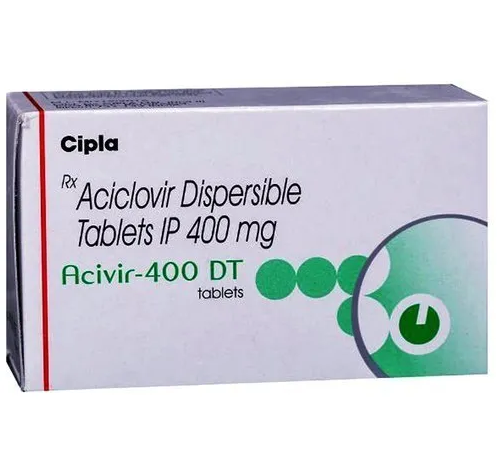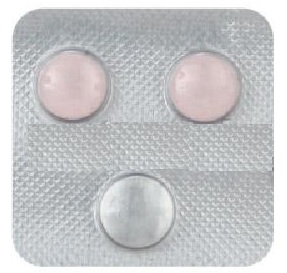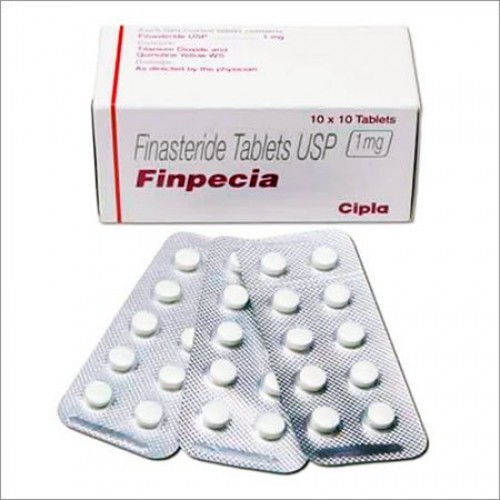
Acyclovir is prescribed for the treatment of herpes virus infections (sex organs, skin, brain, and mucous membranes), chickenpox symptoms, and shingles. Acyclovir is also prescribed to treat prevalent herpes virus infections in new borns and to prevent recurrent genital herpes infections.
What You Need to Know About Acyclovir?
Acyclovir belongs to antiviral drugs. It is commonly used to treat and prevent herpes infections of the mouth, skin, and mucous membranes, herpes zoster, genital herpes, and chickenpox. Acyclovir is not a complete cure for herpes infections however it considerably provides pain relief and allows the infection to clear up sooner. It efficiently eases infection-associated pain and encourages the healing of blisters or sores.
Herpes simplex virus continues to stay in the body of the sufferer throughout the life causing future outbreaks. Acyclovir efficiently treats genital herpes outbreaks. Patients experiencing frequent outbreaks of genital herpes infections are prescribed Acyclovir to lessen the count of future episodes. It reduces the length and seriousness of these outbreaks.
Acyclovir promotes faster healing of sores, prevents the formation of new sores and reduces infection associated pain and itching. It also helps manage the pain after the sores heal. Additionally, Acyclovir diminish the risk of virus touching other body parts in patients with a weakened immune system.
Acyclovir Treatment for Immunocompetent Patients With Recurrent Genital Herpes Infections
Acyclovir is prescribed as a suppressive therapy for adults and adolescents experiencing recurrent genital HSV infection. It is an effective treatment to treat patients with frequent genital herpes virus that is severe and distressful. The typical dosage for adult patients, adolescents and pregnant females is oral Acyclovir 400 mg twice daily.
Understanding Urinary Tract Infections (UTIs)
A urinary tract infection may occur in any part of the urinary system including the kidneys, bladder, ureters, and urethra. Most of the time, UTIs involve the lower urinary tract comprising the urethra and bladder. your doctor may ask you for the urine culture and computed tomography scan to check if there is a urinary tract obstruction.
Females are more likely to develop UTIs as compared to males. When the infection is restricted to the bladder, it can be extremely throbbing and annoying. However, if a UTI reaches to kidneys it may lead to serious health conditions. Generally, UTIs are treated with antibiotic medications.
Symptoms of Urinary Tract Infections
UTIs may occur with or without symptoms. In elderly people, UTIs may be unnoticed or mistaken for other health conditions. Symptomatic UTIs may include symptoms such as:
- Continuous urge to urinate
- Urine with a strong smell
- Cloudy color urine
- Burning sensation while passing urine
- Often urination with small amounts
- Red, bright pink, or cola-colored urine
- Pelvic pain around the pubic bone area and in the center of the pelvis (women)
Risk Factors for UTIs

Females are more likely to develop an infection after sexual activity or while using spermicide and diaphragm for birth control. Lowered estrogen levels, elevated vaginal pH and menopause can increase the risk of getting UTI. Other risk factors for UTI development include diabetes, structural abnormalities in the urinary tract, catheter use, and a suppressed immune system.
Virus Associated Urinary Tract Infection
Even though certain viruses naturally occur in the urinary tract of healthy people, viral infection can evolve as a major concern in immunocompromised patients. Patients enduring hematopoietic stem cell or solid organ transplantation may be more vulnerable to the BK virus and certain other viruses. These patients may be at greater risk of mortality. The most reported appearance in this setting is hemorrhagic cystitis.
It was noticed that viral infections are a typical cause of hemorrhagic cystitis. It is the most common presenting symptom of viral urinary tract infection. Hemorrhagic cystitis is a well-known complication associated with hematopoietic stem cell transplantation with 15-25% incidences. It involves various symptoms ranging from microscopic hematuria to severe hemorrhage.
Mostly the supportive treatment is provided comprising the immunosuppression reduction and various experimental agents have also been approached. A changed context is provided by chronic infections such as HIV and HBV or acute and subacute infections such as Dengue and Hantavirus where the kidneys can also be involved and experience severe glomerular syndromes.
Rendering the systemic infection several protocols depending on various direct-acting antivirals (oral) and combined antiretrovirals are available. Viral infections can be categorized based on the organs involved such as lower urinary tract infections (bladder) and upper urinary tract infections (ureters and kidneys) and depending on the mechanism of injury.
A particular segment is dedicated to the SARS-CoV-2 breakout that does not exclude the urinary tract and even with severe implications sometimes. Yet if this topic is generally an ultra-dedicated physician’s discipline, this indication has a practical approach and it could be beneficial to a broader medical audience, particularly during viral pandemics.
JC Virus in Urinary Tract Infections
The kidney and central nervous system are considered the pools of JC virus infection in which the virus can continue to stay dormant after the primary infection. The possible role of the JC virus has recently recognized in urinary tract involvement.
Oral Valacyclovir Treatment for Patients With Refractory IC/BPS (VARIC)

Interstitial cystitis/bladder pain syndrome (IC/BPS) is a combined term signifying ailments that are described by lower urinary tract symptoms such as pain or discomfort in the bladder, and frequent urination without indication of bacterial infection.
Viral infection in the urinary bladder may cause IC/BPS and thus antiviral treatment can work as a curative treatment for IC/BPS patients. Antiviral agents such as Valacyclovir are widely used to treat patients having EBV infection due to its strong efficiency against herpes virus.
The etiology of IC/BPS is still undefined, and commonly prescribed current treatments for IC/BPS are just to control the associated symptoms. The previous study discovered Epstein-Barr virus (EBV) infection offered in the IC/BPS bladders and comprised the pathogenesis. Henceforward, using the anti-viral drug Valacyclovir for patients suffering from IC/BPS might possess clinical efficacy.
Comprehensive Description
A prospective study is conducted to assess the beneficial effect of Valacyclovir (oral) for patients suffering from IC/BPS. The clinical symptom index of the American Urological Association guideline was used to diagnose IC/BPS.
The IC/BPS patients suffering from coexisting urological diseases, such as ketamine cystitis, neurogenic voiding dysfunction, or acute bacterial cystitis in the past month and with the probability of pregnancy were not included.
Initially, the registered patients were examined for urinary analysis and culture to rule out the current bacteriuria. The registered patients’ comprehensive medical history has been reviewed. The females of childbearing potential were asked for a pregnancy test. The patients provided their urine samples for the urinary virus investigation before the treatment.
The patients were examined for standard clinical systems such as OSS, ICSI, ICPI, and Visual Analog Score. The VUDS report parameters were also recorded. An informed consent has been obtained from all participants before starting the intervention.
Valacyclovir was used in this study due to its higher bioavailability. The dosage of Valacyclovir was used depending on a previous study involving Valacyclovir for genital herpes simplex virus infection. All participants were given open-label oral Valacyclovir 500 mg twice daily for 4 weeks.
An estimated 30 patients having IC/BPS with proof of EBV bladder infection were enrolled in this study. As the Valcyclovir therapy was started, the patients were interviewed through a telephone call to determine changes in current symptoms during the initial two weeks of the treatment.
The complete improvement of this therapy was assessed with the Global Response Assessment including. The GRA, VAS, and adverse effects were examined in the telephone interview. After the complete 4-week treatment, patients were called to the clinic.
All symptoms questionnaire and any adverse effects were evaluated again. The patients were asked to give a urine sample again. The primary endpoint of this study is GRA at 4 weeks and the secondary conclusion comprises the modifications of VAS, QoL, ICSI, ICPI, and OSS between the baseline and end of this study.
Conclusion
Valacyclovir treatment may ease bladder pain significantly in patients having IC/BPS particularly those experiencing more severe baseline symptoms. Urinary Epstein-Barr virus (EBV) could be diagnosed in patients with HIC and was eradicated after 4 weeks with Valacyclovir treatment. Urinary inflammatory cytokines levels were also decreased considerably after Valacyclovir treatment.
Acyclovir Drug Interactions

Drug interactions may interfere with how your medicines act against the infection and may make you vulnerable to developing side effects. Inform your health care professional about the medicines, herbal products, health supplements or any other pharmacy products you are using. Taking any other medicines while having Acyclovir treatment may contribute to an increased risk of adverse events. Use this medication exactly as your doctor tells you.
Certain anti-inflammatory drugs including Naproxen and Ibuprofen may interact with Acyclovir and cause kidney problems. Acyclovir is quite similar to Valacyclovir thus it is advised to avoid both of these medications concurrently.
Other drugs which may interact with Acyclovir are:
- Bupropion
- Emtricitabine
- Dichlorphenamide
- Nitisinone
- Foscarnet
- Fexinidazole
- Leflunomide
- Tenofovir Alafenami
Can Acyclovir Treat Urinary Tract Infection?
Acyclovir is an antiviral medication that provides symptom relief from herpes virus infections. Early treatment with oral Acyclovir can effectively ease symptoms and prevent outbreaks. Antiviral drugs should be used cautiously in patients with liver disease, renal impairment, renal failure and who are taking nephrotoxic drugs. Acyclovir is a prescription medication. It is not advised to use this medication until your healthcare provider has prescribed you.





